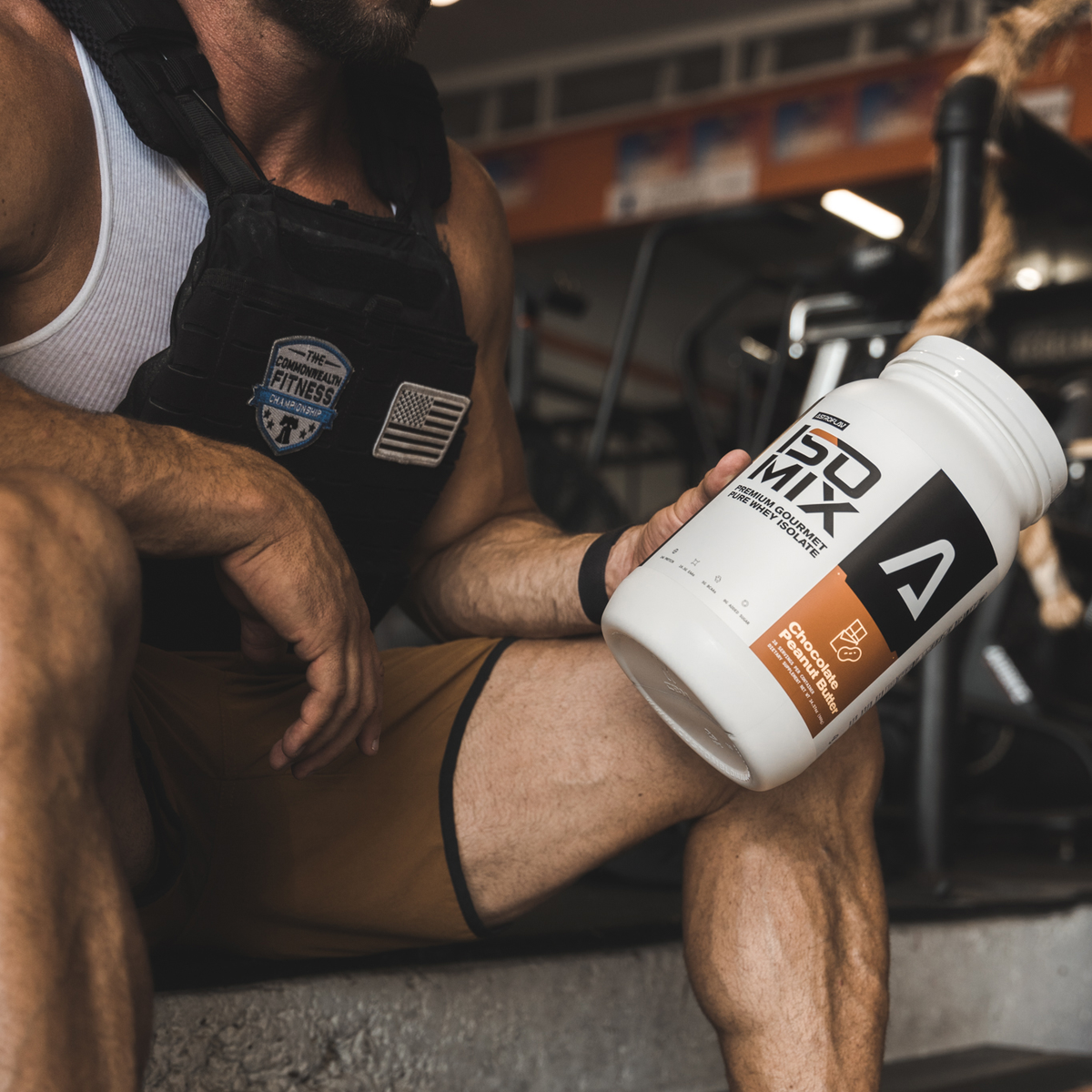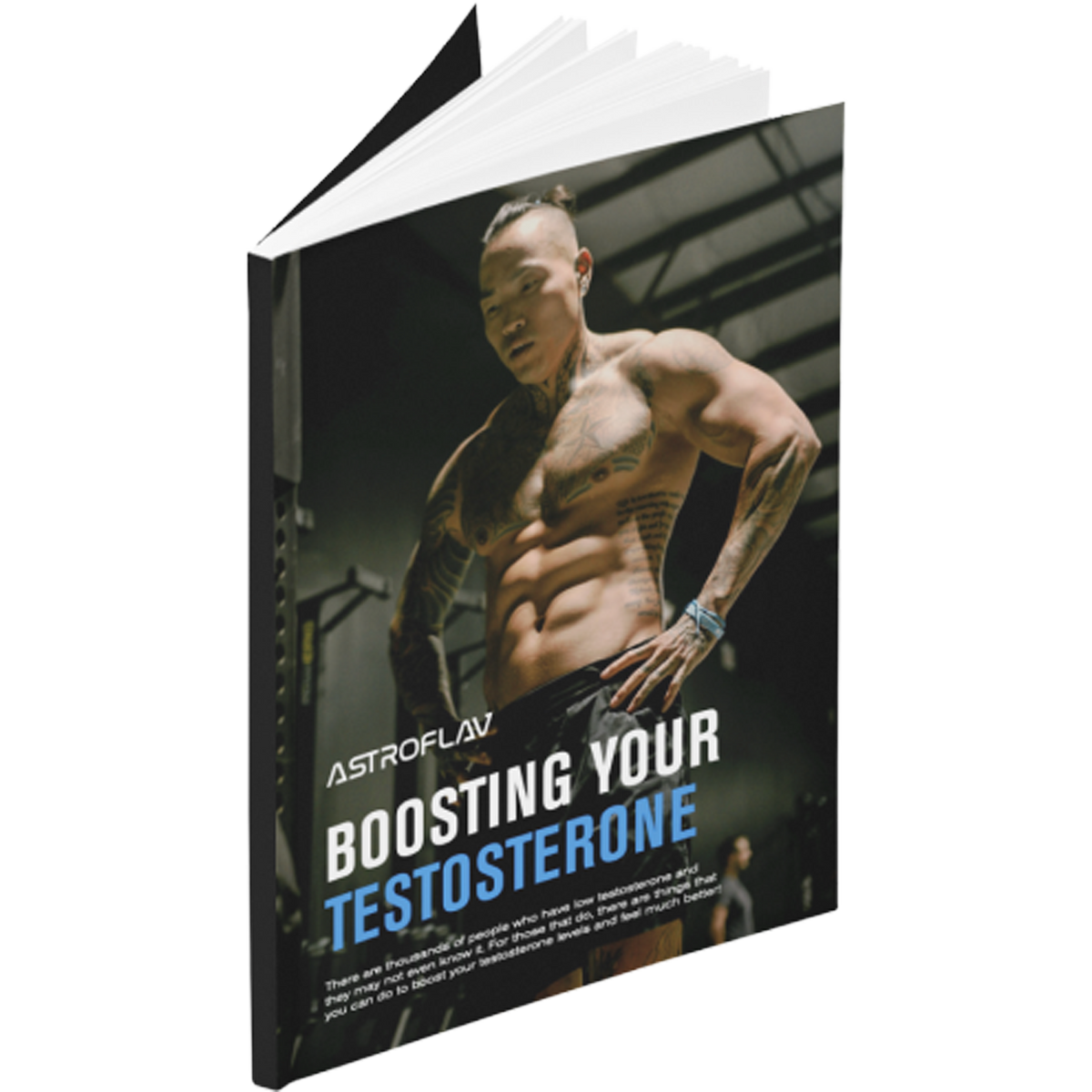
The Hidden Impact of High Cortisol: Poor Sleep, Slow Recovery, and the Silent Muscle Killer
In today’s busy world, we all want to get stronger, feel healthier, and perform better—whether it’s in the gym, at work, or in life. But there’s a hidden enemy that can stop all of that progress in its tracks. It’s called cortisol.
Most people don’t even realize it’s working against them. Yet high cortisol can ruin your sleep, slow your muscle recovery, and even stop your body from building muscle at all.
In this article, we’ll explain what cortisol is, why it becomes a problem, and why common fixes often don’t work. Then, we’ll reveal a science-backed combination of ingredients that can help lower cortisol, improve sleep, and supercharge your recovery.
What Is Cortisol?
Cortisol is a stress hormone made by your adrenal glands. It’s not always bad. In fact, we need it.
In small amounts, cortisol helps:
-
Wake you up in the morning
-
Give you energy during stressful times
-
Help your body heal from injuries
But when cortisol stays too high for too long, it causes trouble..
What Happens When Cortisol Stays High?
Cortisol is meant to rise and fall in a healthy daily rhythm. But when it stays too high for too long, problems start to stack up—and they hit in ways many people don’t expect.
Here’s what elevated cortisol does to your body and why it matters:
-
Disrupts Sleep (You Can’t Fall Asleep or Stay Asleep):
Cortisol is supposed to drop at night, allowing melatonin and calming brain chemicals like GABA to help you relax into deep sleep. When cortisol stays elevated, your body stays alert even when you’re tired. You might feel “wired but exhausted” or find yourself waking up multiple times during the night. Over time, poor sleep quality leads to a vicious cycle where high cortisol and bad sleep fuel each other.

Here’s what elevated cortisol does to your body and why it matters:
-
Disrupts Sleep (You Can’t Fall Asleep or Stay Asleep):
Cortisol is supposed to drop at night, allowing melatonin and calming brain chemicals like GABA to help you relax into deep sleep. When cortisol stays elevated, your body stays alert even when you’re tired. You might feel “wired but exhausted” or find yourself waking up multiple times during the night. Over time, poor sleep quality leads to a vicious cycle where high cortisol and bad sleep fuel each other.
-
Breaks Down Muscle (Catabolism):
Cortisol increases the breakdown of muscle tissue to release amino acids for energy—especially when your body thinks it’s under stress. This catabolic effect is the opposite of what athletes and fitness enthusiasts want. Even with proper training and nutrition, high cortisol can prevent muscle growth and lead to muscle loss over time.
-
Increases Belly Fat:
Chronic stress and high cortisol levels are closely linked to fat gain around the abdomen. Cortisol promotes fat storage, especially visceral fat (the dangerous fat surrounding your organs). This is why even people who eat well and exercise can struggle with stubborn belly fat when cortisol is out of control.
-
Raises Blood Sugar Levels:
Cortisol triggers the release of glucose (blood sugar) into the bloodstream to provide quick energy during stress. But when cortisol stays high, this can lead to consistently elevated blood sugar levels—even if you’re not eating large amounts of carbs. Over time, this may increase the risk of insulin resistance and make fat loss more difficult.
-
Causes Mood Swings and Anxiety:
Cortisol doesn’t just affect the body. It impacts the brain, too. High cortisol can disrupt the balance of mood-regulating neurotransmitters like serotonin and dopamine. This can lead to feelings of irritability, anxiety, and even depression. Many people with high cortisol feel constantly “on edge” or emotionally drained.
-
Slows Down Recovery After Workouts:
Recovery is when progress happens—muscle repair, glycogen replenishment, and nervous system reset. But elevated cortisol interferes with all of these processes. It keeps the body in a breakdown state instead of a rebuild state. Even if you train smart and eat well, recovery slows down, leading to more soreness, fatigue, and plateaued results.
-
Your Body Gets Stuck in “Fight or Flight” Mode:
High cortisol essentially traps your body in survival mode. This makes it harder to relax, sleep, or shift into a state where healing and growth can happen. Over time, it wears down not just your physical performance but also your mental resilience and motivation.
Why Does Cortisol Stay High?
When people start noticing poor sleep, stubborn belly fat, or constant fatigue, they usually turn to the most obvious solutions. Some try generic sleep aids like melatonin-only supplements, hoping to fall asleep faster. Others add magnesium, believing it will calm their body and improve recovery. And many try cutting back on workouts, thinking they might be overtraining.
At first, these changes might bring a little relief. You might fall asleep slightly faster or feel less worn out. But these fixes rarely address the real issue—chronically high cortisol. They don’t directly lower cortisol levels, they often fail to correct true magnesium deficiencies, and they don’t fully support the deep, restorative sleep your body needs to break the cycle of stress and poor recovery.
That’s why, despite trying all these common remedies, many people still wake up feeling tired, experience slow progress in the gym, and feel stuck in a constant state of stress. To truly reset cortisol and rebuild healthy sleep and recovery patterns, your approach needs to do more than mask symptoms. It has to work on multiple levels, tackling cortisol, sleep quality, and nutrient balance all at once.
3 Science-Backed Ways to Lower Cortisol Naturally

Before considering supplements, it’s important to get the basics right. The first step is to prioritize sleep hygiene. This means going to bed and waking up at the same time every day, keeping your bedroom cool and dark, and avoiding screens for at least an hour before sleep. A consistent nighttime routine helps reset your body’s natural cortisol rhythm, allowing levels to drop when they should.
The next step is to manage stress during the day. Simple habits like taking deep breaths, pausing between tasks, and minimizing unnecessary stressors can keep cortisol from staying elevated. Even small breaks or a short walk can help bring the body back to a calmer state.
Finally, it’s essential to eat balanced meals. Including protein, healthy fats, and complex carbohydrates at each meal supports steady energy levels and prevents cortisol spikes that can happen when blood sugar drops. Skipping meals or eating too few calories can actually raise cortisol, making proper nutrition a key part of the solution.
These changes can make a big difference—but for many people, lifestyle habits alone aren’t enough to fully bring cortisol back into balance. That’s where targeted nutrients can provide the extra support the body needs.
The Secret Weapon: AstroFlav Cortisol Recovery Stack
Lowering cortisol isn’t about chasing the latest trendy fix or trying random supplements. It requires a targeted approach that works with your body’s natural systems — calming stress, restoring deep sleep, and supporting muscle recovery all at once.
That’s exactly why we created the AstroFlav Cortisol Recovery Stack.
This powerful, research-backed formula combines four proven ingredients that work synergistically to tackle the root causes of high cortisol:
-
Lower stress hormones like cortisol and support a calm, focused mind
-
Promote deep, restorative sleep (not just more hours, but better sleep quality)
-
Replenish key nutrients (like highly bioavailable magnesium) that most people lack
-
Boost nighttime recovery so you can rebuild muscle, burn fat, and feel recharged every morning
Whether you’re an athlete pushing your limits, a busy professional juggling daily stress, or someone simply trying to feel and function better — this stack gives you a strategic edge.
Stop patching symptoms. Start supporting the real solution.


What it does: A powerful adaptogen that helps lower cortisol levels and reduce stress.
Also supports mood, focus, and sleep quality.
Why it matters: Ashwagandha is backed by over a dozen clinical studies showing its ability to reduce cortisol by up to 30% in stressed adults.

What it does: Supports deeper, more restful sleep by boosting GABA, the brain’s calming neurotransmitter.
Also helps improve mood and reduce sleep anxiety.
Why it matters: Sleep isn’t just about hours—it’s about quality. Zylaria® helps you spend more time in deep sleep, where most recovery happens.

What it does: Three highly absorbable forms of magnesium that work together to:Support muscle relaxation, Lower stress, & Improve sleep quality.
Also helps improve mood and reduce sleep anxiety.
Why it matters: Up to 50% of adults don’t get enough magnesium. Without it, cortisol stays high and muscles stay tense.

What it does: Mimics the effects of exercise by promoting fat-burning and supporting energy production.
Why it matters: Helps your body burn fat for fuel even while you sleep. Also assists in healthy body composition and recovery.
Why These Ingredients Work Better Together
Each ingredient supports a different piece of the cortisol puzzle:
By stacking them together, you get:
-
Lower nighttime cortisol
-
Deeper, more refreshing sleep
-
Better muscle recovery
-
Less anxiety and mood swings
-
More fat-burning potential overnight

Real Talk: Most People Miss This Key Step
Even people who focus on diet, exercise, and sleep often forget:
If cortisol stays high, your recovery stays low.
You might work out, eat well, and still feel stuck.
That’s why combining lifestyle changes with targeted supplementation can be the missing link between "trying harder" and finally seeing results.
How to Use the Cortisol Recovery Stack
Step 1: Take 2 capsules of Sleep + Recover about 30 minutes before bed.
Step 2: Take 2 capsules of Magnesium with your last meal or alongside Sleep + Recover.
Pro Tip: For best results, use the stack consistently for at least 4 weeks. This allows the ingredients to fully support your body’s stress response and sleep cycles.
For even better results, pair with:
-
A consistent sleep schedule
-
A relaxing nighttime routine
-
Simple daytime stress-management habits

Consistency is key. Recovery isn’t a quick fix — but with the right support, you’ll feel the difference night after night.
The Bottom Line: Focus on What Works
Cortisol is your body’s natural stress hormone—but when it’s out of balance, it can sabotage your sleep, recovery, and muscle growth.
By focusing on the right habits and using science-backed nutrients like Sensoril® Ashwagandha, Zylaria®, Magnesium, and MitoBurn®, you can finally take control.
Ready to stress less, sleep deeper, and grow faster?
Learn more about the Cortisol Recovery Stack and how it can help you reclaim your recovery tonight.
SOURCES:
-
Mayo Clinic – “Cortisol: What It Does & Why It Matters”
https://www.mayoclinic.org/tests-procedures/cortisol/about/pac-20385095
-
National Institutes of Health (NIH) – “Stress and the HPA Axis”
-
Harvard Health – “Why Stress Causes Weight Gain”
https://www.health.harvard.edu/staying-healthy/why-stress-causes-people-to-gain-weight
-
Journal of Clinical Sleep Medicine – “Cortisol’s Impact on Sleep Quality”
-
Sleep Foundation – “How Sleep Affects Muscle Recovery”
https://www.sleepfoundation.org/physical-health/how-sleep-affects-muscle-recovery
-
Healthline – “Ashwagandha and Cortisol Reduction”
https://www.healthline.com/nutrition/ashwagandha-benefits#stress-and-anxiety
-
Nutrients Journal – “GABA and Sleep Quality”
-
Frontiers in Nutrition – “Magnesium and Sleep”
https://www.frontiersin.org/articles/10.3389/fnut.2022.899907/full
-
National Institutes of Health (NIH) – “Magnesium: Fact Sheet for Health Professionals”
https://ods.od.nih.gov/factsheets/Magnesium-HealthProfessional/
-
Journal of the International Society of Sports Nutrition – “Effects of MitoBurn® (BAIBA) on Fat Oxidation and Metabolism”
https://jissn.biomedcentral.com/articles/10.1186/s12970-020-00381-7
-
Cleveland Clinic – “The Importance of Managing Stress for Physical Health”
-
American Psychological Association – “Why Sleep Hygiene Matters”



